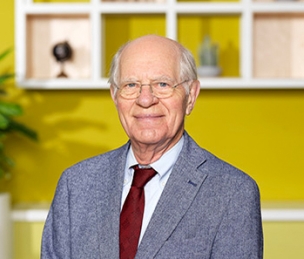Displaying 1 - 3 of 3
-
Levelt, W. J. M. (2020). On becoming a physicist of mind. Annual Review of Linguistics, 6(1), 1-23. doi:10.1146/annurev-linguistics-011619-030256.
Abstract
In 1976, the German Max Planck Society established a new research enterprise in psycholinguistics, which became the Max Planck Institute for Psycholinguistics in Nijmegen, the Netherlands. I was fortunate enough to be invited to direct this institute. It enabled me, with my background in visual and auditory psychophysics and the theory of formal grammars and automata, to develop a long-term chronometric endeavor to dissect the process of speaking. It led, among other work, to my book Speaking (1989) and to my research team's article in Brain and Behavioral Sciences “A Theory of Lexical Access in Speech Production” (1999). When I later became president of the Royal Netherlands Academy of Arts and Sciences, I helped initiate the Women for Science research project of the Inter Academy Council, a project chaired by my physicist sister at the National Institute of Standards and Technology. As an emeritus I published a comprehensive History of Psycholinguistics (2013). As will become clear, many people inspired and joined me in these undertakings. -
Levelt, W. J. M. (2020). The alpha and omega of Jerome Bruner's contributions to the Max Planck Institute for Psycholinguistics. In M. E. Poulsen (
Ed. ), The Jerome Bruner Library: From New York to Nijmegen (pp. 11-18). Nijmegen: Max Planck Institute for Psycholinguistics.Abstract
Presentation of the official opening of the Jerome Bruner Library, January 8th, 2020Additional information
Link to booklet - The Jerome Bruner Library: From New York to Nijmegen -
Greenfield, P. M., Slobin, D., Cole, M., Gardner, H., Sylva, K., Levelt, W. J. M., Lucariello, J., Kay, A., Amsterdam, A., & Shore, B. (2017). Remembering Jerome Bruner: A series of tributes to Jerome “Jerry” Bruner, who died in 2016 at the age of 100, reflects the seminal contributions that led him to be known as a co-founder of the cognitive revolution. Observer, 30(2). Retrieved from http://www.psychologicalscience.org/observer/remembering-jerome-bruner.
Abstract
Jerome Seymour “Jerry” Bruner was born on October 1, 1915, in New York City. He began his academic career as psychology professor at Harvard University; he ended it as University Professor Emeritus at New York University (NYU) Law School. What happened at both ends and in between is the subject of the richly variegated remembrances that follow. On June 5, 2016, Bruner died in his Greenwich Village loft at age 100. He leaves behind his beloved partner Eleanor Fox, who was also his distinguished colleague at NYU Law School; his son Whitley; his daughter Jenny; and three grandchildren.
Bruner’s interdisciplinarity and internationalism are seen in the remarkable variety of disciplines and geographical locations represented in the following tributes. The reader will find developmental psychology, anthropology, computer science, psycholinguistics, cognitive psychology, cultural psychology, education, and law represented; geographically speaking, the writers are located in the United States, Canada, the United Kingdom, and the Netherlands. The memories that follow are arranged in roughly chronological order according to when the writers had their first contact with Jerry Bruner.

Share this page